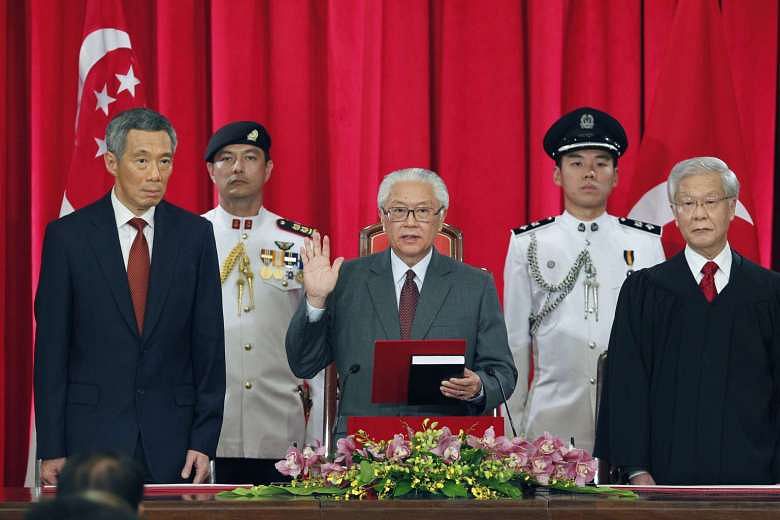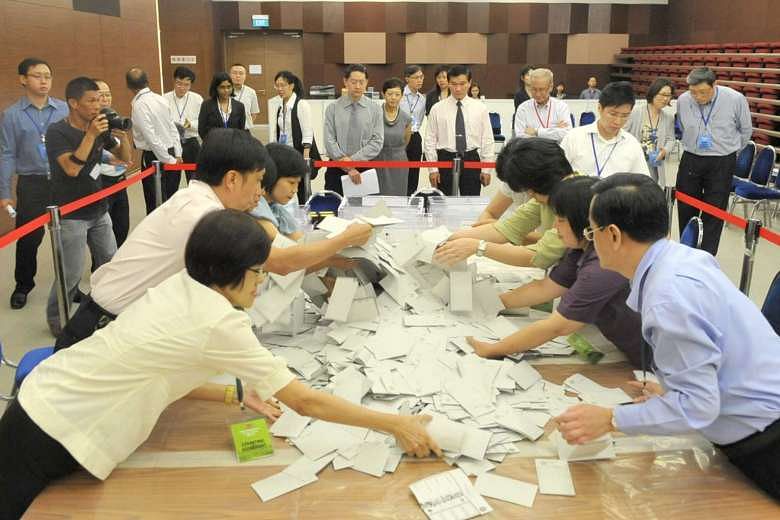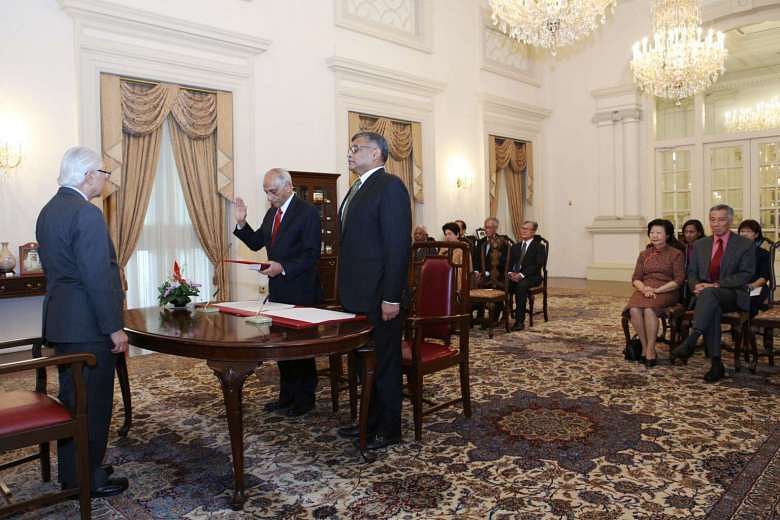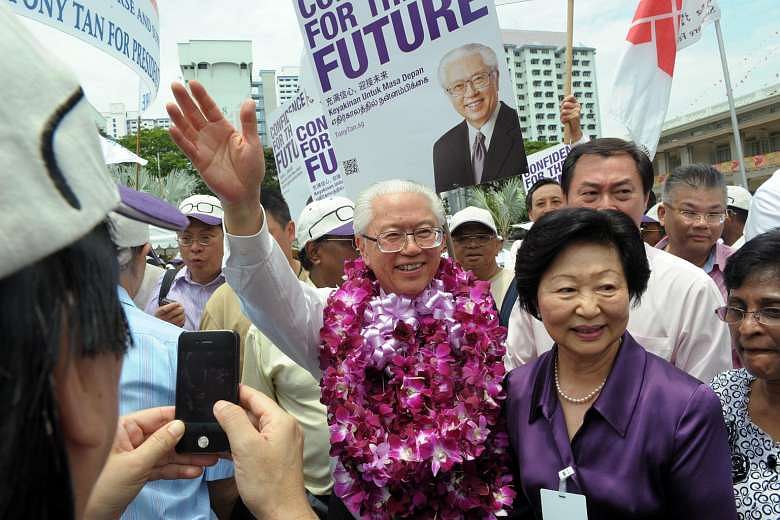Elected presidency report: 4 things to know about the proposed changes
Sign up now: Get ST's newsletters delivered to your inbox
SINGAPORE - A Constitutional Commission set up to review the elected presidency has recommended significant changes to key aspects of the 25-year-old institution.
They include a provision for a minority elected president, the tightening of eligibility criteria of potential candidates, and a bigger role for the council that advises the President.
These proposals were highlighted in a 154-page report which the Government published on Wednesday (Sept 7).
The Government has accepted in principle the main recommendations on these three aspects. It will publish a White Paper on Sept 15 setting out its detailed response to the report. It will then table amendments to the Constitution in Parliament, and have a full debate on the issue.
The Commission also floated the idea of returning to the past system of having Parliament appoint a head of state.
Here are the recommendations at a glance:
1. Minority representation

PHOTO: ST FILE
The Commission proposed that if no president has been elected from the three racial groups - Chinese, Malay, or Indian and Others - for five full, continuous terms or 30 years, the next election will be reserved for a person from that racial group.
If no qualified candidate of that racial group emerges during that election, the contest will then be opened to candidates of all races. The next election will be reserved again for candidates of that racial group.
The provision would not be triggered if regular presidential elections produce presidents of different ethnicities.
The Commission also said that the eligibility criteria must not be lowered for candidates of any particular racial group to qualify.
Why the need for change?
This is to ensure that the highest office in the land can be held by someone from a minority community, from time to time.
This is crucial as the President symbolises the nation and should reflect its multiracialism, said the Commission.
Before the elected presidency was introduced in 1991, there was what experts called an "unspoken rule" that saw the role being rotated among the four main ethnicities.
Singapore's first four heads of state were Mr Yusof Ishak, a Malay; Dr Benjamin Sheares, a Eurasian; Mr Devan Nair, an Indian; and Mr Wee Kim Wee, a Chinese.
After the elected presidency came into effect, Mr Ong Teng Cheong, a Chinese, was the first Singapore president to be elected at the polls. He was followed by Mr S R Nathan, an Indian, who served for two terms, and current President Tony Tan Keng Yam, a Chinese.
PM Lee, in an interview with MediaCorp broadcast in September 2016, explained that race still matters when it comes to politics and how people vote, hence it is necessary to ensure a president from a minority race is elected from time to time.
He had said: "It is a very necessary symbolism of what we are as a multiracial society - what Singapore means, stands for and what we aspire to be."
2. Eligibility criteria

PHOTO: ST FILE
The Commission has proposed that the bar to contest presidential elections be updated to take into account the growth of the economy and the national reserves.
It recommended that the duration potential candidates must have held qualifying public or private sector positions be doubled, from three to six years.
It also wants to add a provision that the entire period of the candidate's qualifying tenure must be within 15 years of the election.
The definition of a large and complex company - that it must have $100 million in paid-up capital - should be revised to $500 million in shareholders' equity, the Commission suggested.
It also said that only those in the most senior executive position should qualify.
Another recommendation was that the company should have recorded a net profit during the candidate's time heading it, and should he leave the company, there must not be any insolvency process within three years.
Why the need for change?
The changes are to ensure that whoever is elected has the expertise and experience to carry out the president's duties as guardian of the national reserves, the Commission said.
PM Lee, in the TV interview aired in September, said the qualifying criteria, set 25 years ago, needs to be updated to ensure a private sector candidate for the role is qualified and capable to do the job.
The criteria for a private sector candidate - having run a large and complex company, defined as one with $100 million in paid-up capital - had remained constant, even though the economy and the size of the national reserves had multiplied around seven times.
In 1990, $100 million was a "significant threshold" with fewer than 200 companies fitting that category. But today, 2,000 companies meet that mark.
3. Council of Presidential Advisers (CPA)

PHOTO: MCI
The Commission proposed that the CPA be expanded and for its views to be given greater weight in a clash between the President and Government.
It also recommended that for all fiscal matters and public service appointments, the President must consult the council before exercising his veto. Currently, the President needs to do so for some such matters only.
In line with its prospective bigger role, the council should have eight, instead of six members now.
The length of their term of service should be increased as well.
Currently, members are appointed for six years and can be reappointed for four-year terms. The Commission recommended that on re-appointment, the term should also be for six years.
Why the need for change?
The CPA is an integral part of the two-key mechanism, said the Commission which recommended that it be strengthened to enhance "stabilisers" in Singapore's system of governance.
This point was also made by PM Lee said in January 2016. The system does not rely on the President alone, he said, but on the President being "well-advised by a team of wise and experienced men and women".
He also raised the question of whether the council's advice should count for more in the President's decisions. "A delicate balance" must be struck, he said.
4. The need for elections

PHOTO: ST FILE
The Commission recommended that the Government could, at some stage, consider separating the custodial and ceremonial roles of the President and returning to the system of having the Parliament appoint the President.
A group of appointed experts could assume the custodial role, allowing it to handle the task without being distracted by political issues or having to be elected.
The President can focus on being a symbolic, unifying figure for the nation.
Why the need for change?
This issue was beyond the Commission's terms of reference. But it said that in the course of its review, it considered how any weakness in the elected presidency could be overcome by an alternative design.
Its view is that there is "unavoidable tension" between the President's historic role as a unifier of the nation and his custodial role safeguarding critical assets.
But PM Lee, in his response to the report, said: "While I appreciate the Commission's reasons for this suggestion, as the Government has pointed out even when the scheme was first conceived, it would be difficult for a President to exercise custodial powers over the reserves and public service appointments, and veto proposals by the Government, without an electoral mandate."


